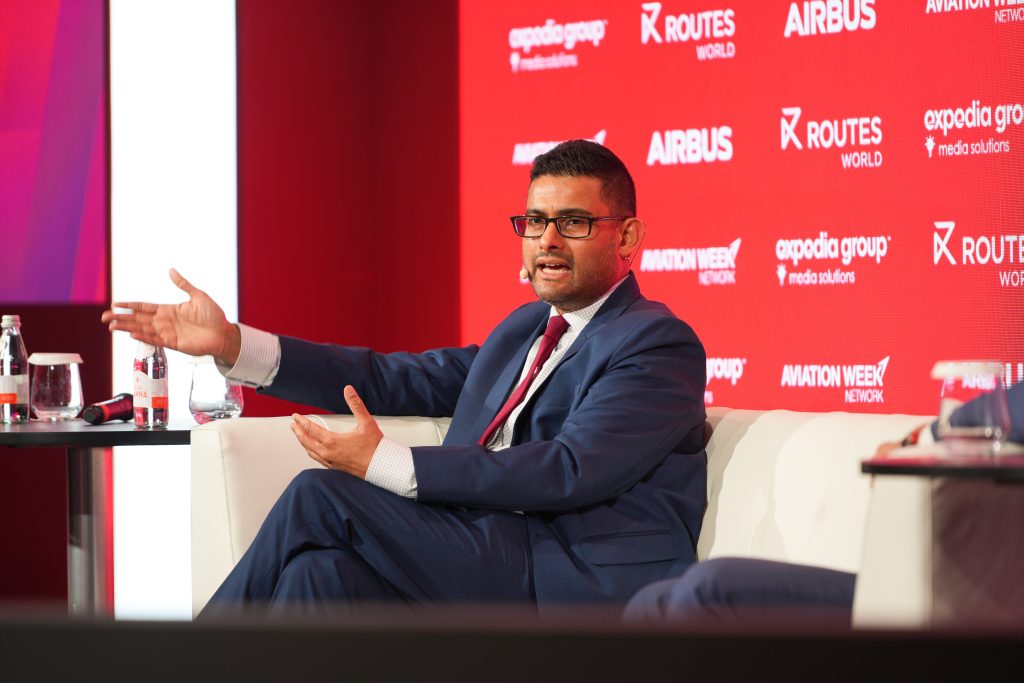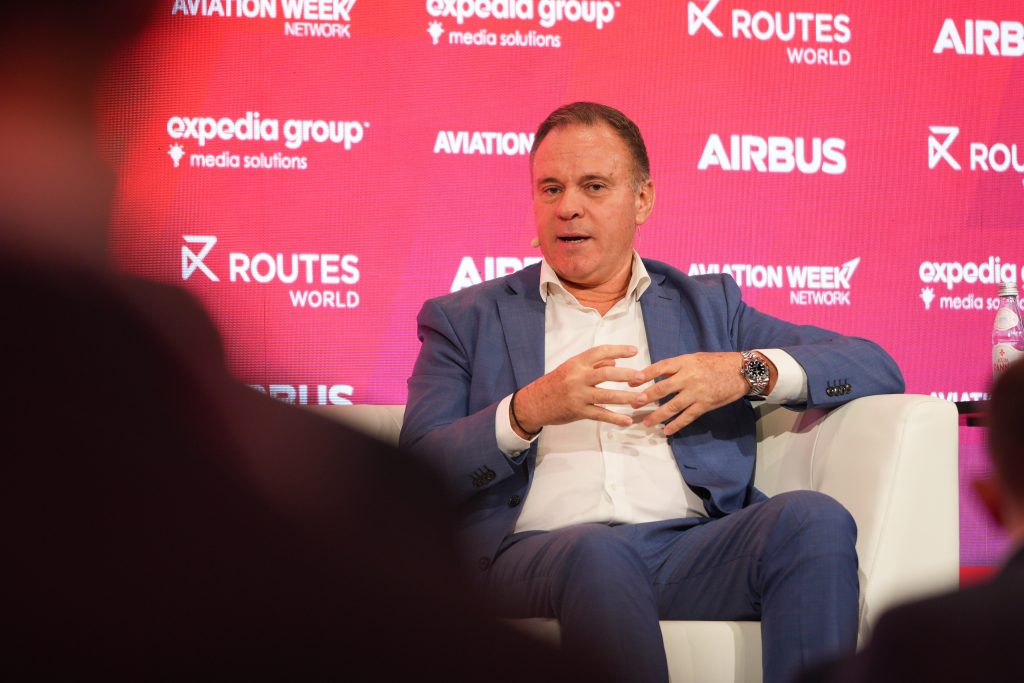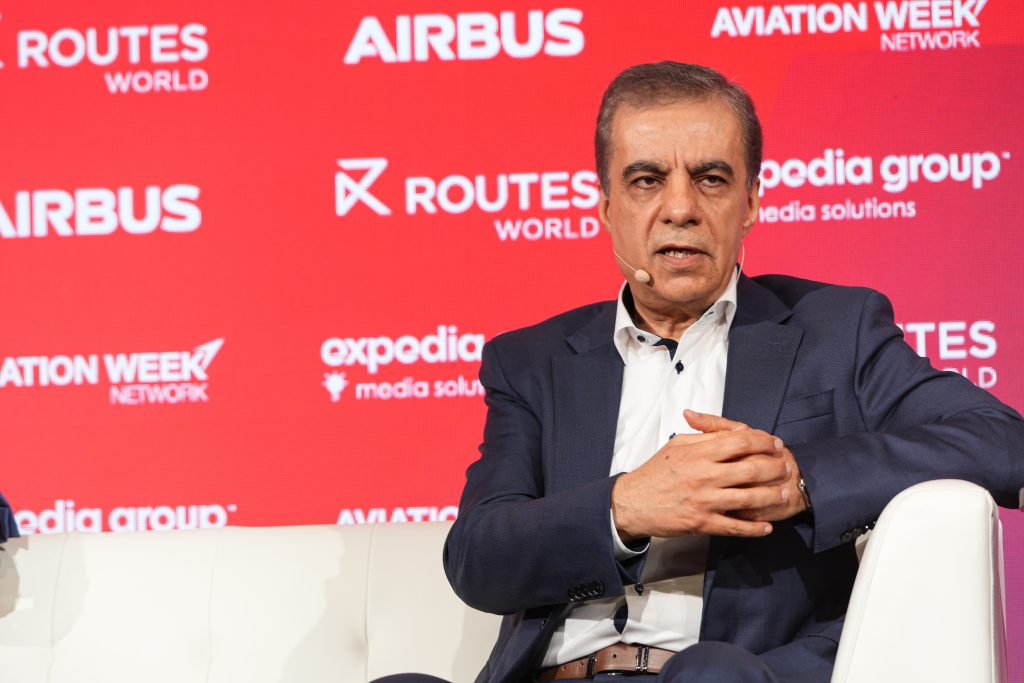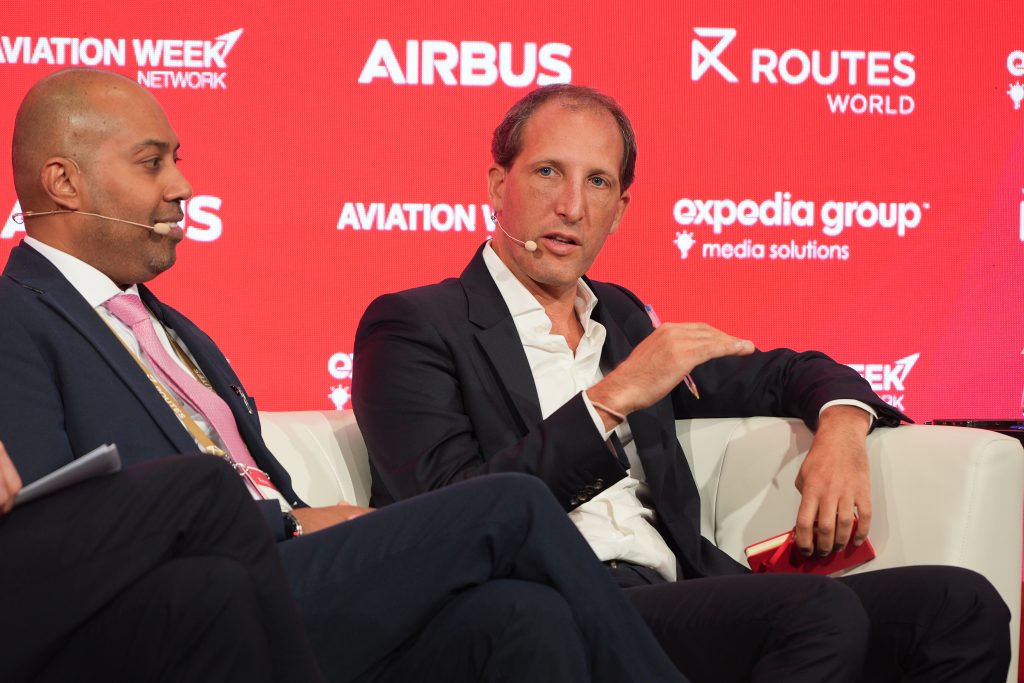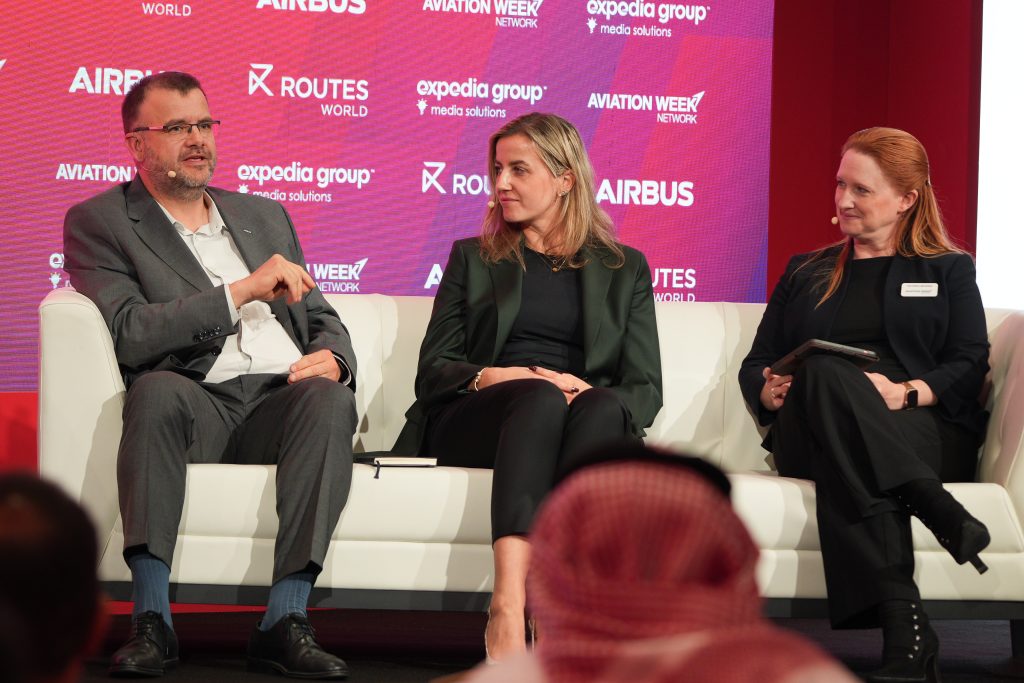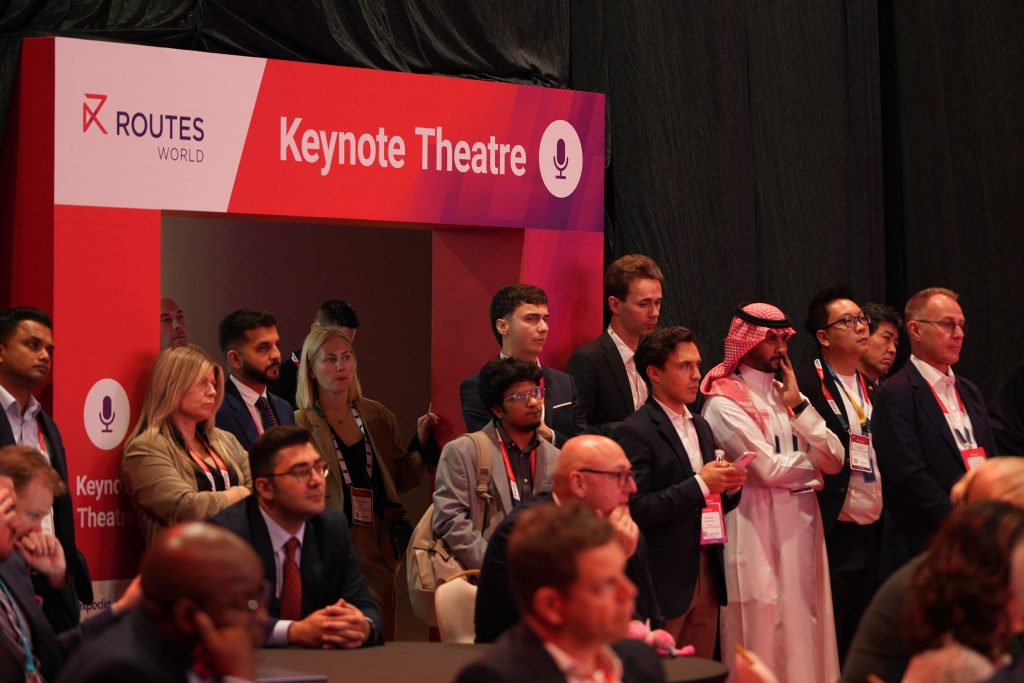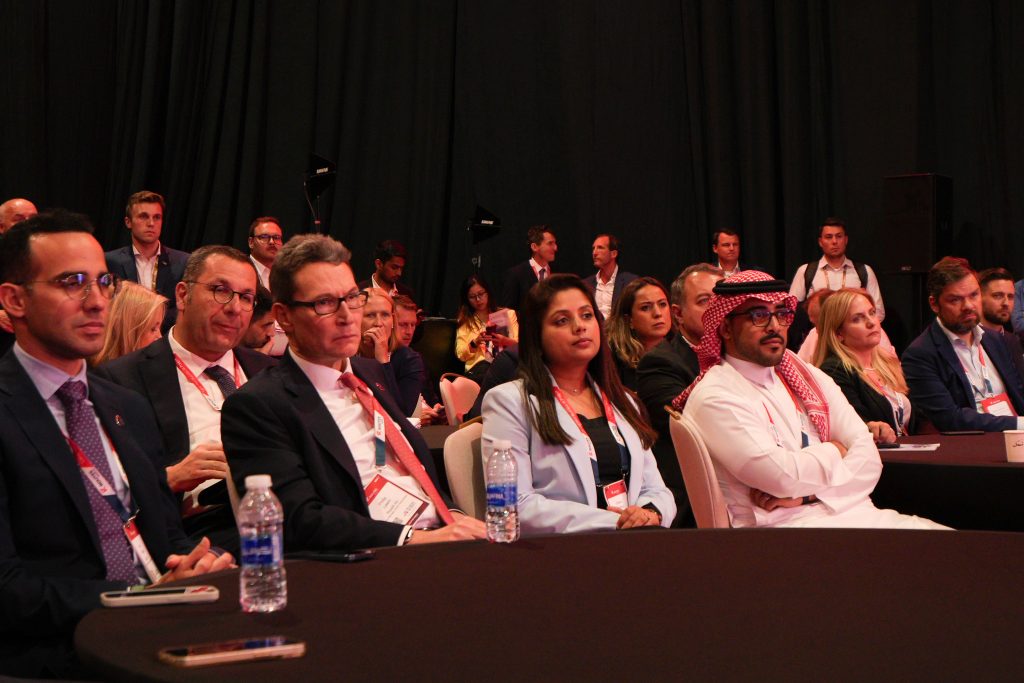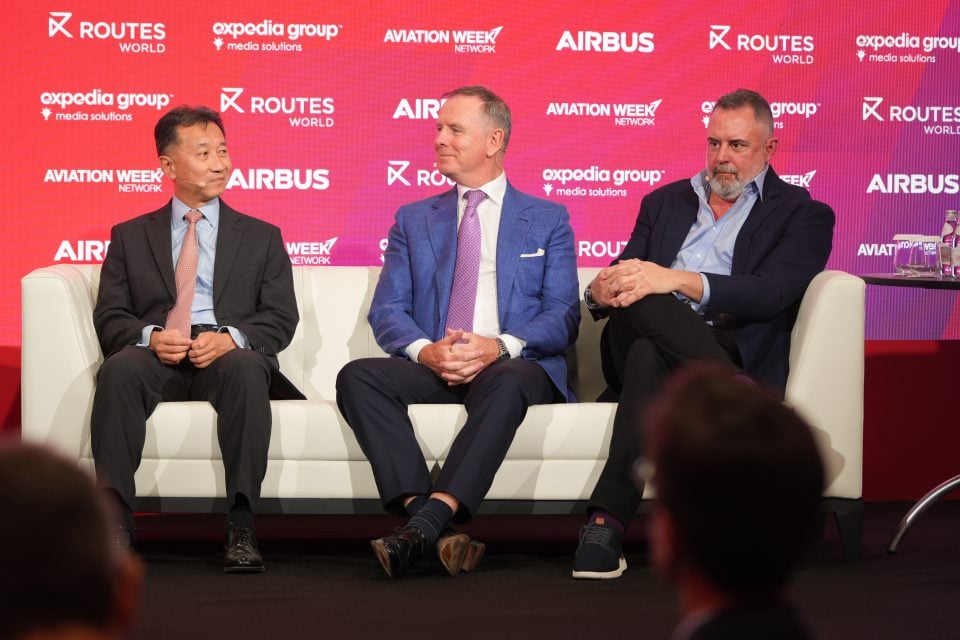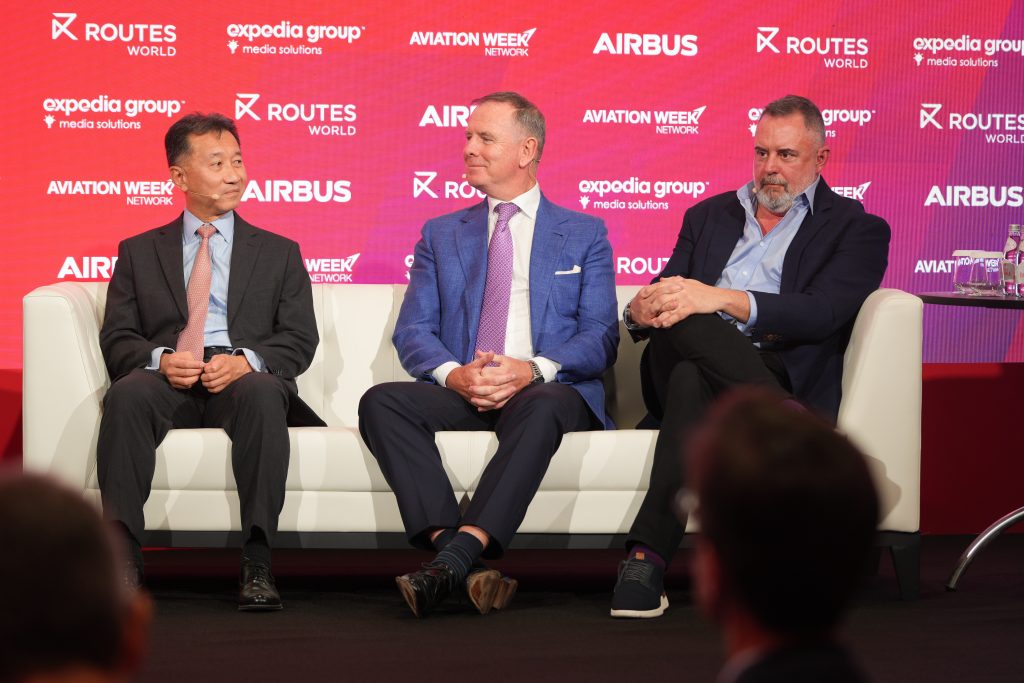
Routes World organisers served up a sushi train of Senior Airline Executives representing the major regional players including Gulf Air, flyadeal, Riyadh Air, Oman Air, Etihad Airways and Air Arabia. Here are the top takeaways from this year’s event.
1. Supply chain constraints
This was one of the most frequently cited major issues raised by CEOs. Delays in product and service delivery extend beyond the well-documented delays from aircraft manufacturers, constraints also affect engine manufactures, seat suppliers and other onboard equipment specialists. Extended delivery bottlenecks are expected to persist, with estimates suggesting it will take approximately two to three years for some to clear. With hundreds of planes grounded worldwide, tough conversations ensue over engine support and spare part shortages. Meanwhile, the cost of developing bespoke onboard products, particularly in premium cabins has created separate headaches for Airline Product teams with extended delays also seen. However, carriers that opt for off-the-shelf are able to skip ahead to fast-check out.
2. Geopolitical tensions
While not dwelling on specifics, airline executives acknowledged the impact recent regional conflicts have had on business. Naturally, all airlines prioritise safety, so carriers are coping with new operational complexities including flight cancellations, rear-protections, processing refunds, new flight paths, adjusting fuelling programs and redeploying assets. Marketing and communications campaigns were also cited as a tactic airlines will be deploying to counteract perceived regional safety concerns. Bottom lines are also being impacted as waves of ticket cancellations are triggered in response to changes in government advisories and corporate travel policies.
3. Talent
Post-Covid competition for talent is also a challenge with airline executives taking the opportunity to stress their organisations’ commitment to fostering employee friendly work-cultures; their investment in training and upskilling; as well as adjusting remuneration, in order to attract and retain talent and protect against poaching.
4. Flying billboards
Unsurprisingly, all of the national airline carriers acknowledged the continuing importance of their airlines acting as proxy brands, promoting their home cities on the international stage. Etihad, Oman Air and Gulf Air referenced the improved success of their stopover programs which have recently undergone revamps as a result of working closer with National Tourism Boards, DMC’s and hoteliers. According to Arik De, Chief Revenue and Commercial Officer at Etihad Airways, the Etihad stopover has grown 250% in the past year. Tony Douglas, CEO Riyadh Air yet again stressed the carrier’s positioning as being an ambassador for Riyadh itself
“The brand is Riyadh. The brand is Riyadh. The brand is Riyadh”. Tony Douglas – CEO – Riyadh Air
5. Technology
This is arguably the most important factor determining a carrier’s current state of prosperity. The airlines that have invested heavily in systems, automation and digitalisation over the past eight years are now reaping rewards, while carriers such as Gulf and Oman Air acknowledge they currently have their heads down, busily playing catch up. A Routes World panel focused on comparing LCC’s vs FSC models discussed the importance (and cost burden) of integrating complex systems. Ensuring programs and software synchronise has been made increasingly challenging on two fronts – firstly keeping pace with the hastening rate of technology advancements; and secondly, and perhaps more importantly, the difficulty of integrating systems caught in a tangled web of relationships between airlines and suppliers. CEO’s acknowledged that it’s often easier said then done, when adjusting systems. Multiple types of relationships, interlining, codeshares, alliances, equity investments and new distribution agreements add to the complexity. The panel acknowledged that the burden was made even more difficult by the customer’s ever-increasing demand for digital seamlessness. Riyadh Air will debut their digital guest experience at Future Investment Initiative (FII) in Riyadh (29-31 OCT). Billed by Riyadh Air’s CEO as an Apple-esque launch event, the carrier promises a giant step forward how airlines interact digitally with their guests. The reveal will no doubt attract a lot of curiosity and we’ll keep you posted.
6. Relationships
In a complex and low margin business, an airline’s success often hinges on the quality of their relationships with their closest stakeholders. Whether an airline is winning or losing is often not in their sole own control, and is heavily influenced by interdependence on multiple stakeholders, including aircraft and engine manufactures, airport companies, tourism authorities, regulators and government authorities. The importance of interorganisational relationships was frequently cited as being central to determining an airline’s ability to overcome its challenges. Etihad Airways, Chief Revenue and Commercial Officer Erik De mentioned how he has personally deepened his own understanding of baggage handling as the airline works hand-in-hand with the Zayed International Airport (AUH) team to try reduce their minimum connecting time to under 45 mins.
7. Market outlook
Overall, China has not rebounded as quickly post-Covid. However, judging by the strength of Chinese airport participation at this year’s Routes World conference, there are green shoots re-emerging. India repeatedly was flagged as a key focus for all Gulf carriers as India’s GDP per capita improves, so too does the outbound travel market, due to significant growth in discretionary spending.
8. Sustainability
No specific major announcements were made on this front, but executives routinely point towards the importance of receiving new and more efficient aircraft types as being a central plank in reducing their emissions and meeting targets. Steven Greenway, CEO, Flyadeal raised a valid point highlighting the fundamental nature of the LCC model and its preoccupation on reducing waste and improving efficiency as supportive of the Airline’s sustainability efforts “LCC’s have less of a footprint than premium carriers… We don’t have bespoke products or flatbeds, we don’t carry excess weight with us.” Fair point indeed.
